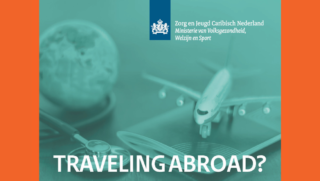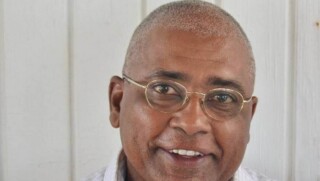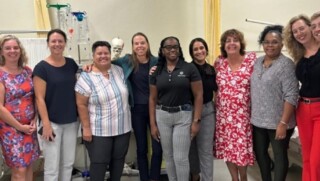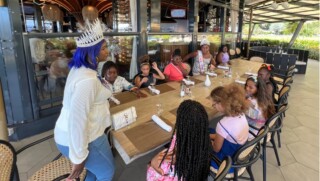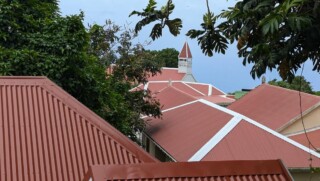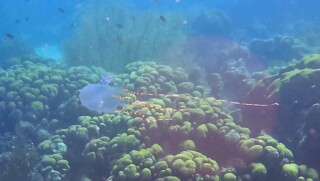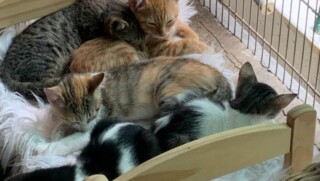How Bonaire became the Region’s Vaccination Champion

Kralendijk- Although the omens were not favorable, Bonaire has managed to become the Vaccination Champion of the region. The positive result was achieved through a combination of coincidence and smart work.
In this article we look back at the factors that contributed to the positive result, which the island could benefit from for a very long time.
Den Heyer
An investigation carried out by Commissioner Nina den Heyer on Vaccination Preparedness on the island at the beginning of 2021, initially produced dramatic results. There was a big difference in Vaccination Preparedness between the different demographic groups on the island. Among Papiamentu speaking residents in particular -by far the largest group of the population – the majority were initially dismissive or strongly hesitant about vaccination.
However, the study, conducted on behalf of the Public Health Department, looked not only at citizens’ willingness to get vaccinated, but also at what was holding them back or what would make them more inclined to get the vaccine. Contrary what happens mostly on these islands, Den Heyer let herself be strongly guided by the results of the study, especially when it came to the Communication Strategy and the pro-vaccination Publicity Campaign. In addition, the Commissioner was visibly present, not only with her own vaccination, but also with that of her two own teenage children when vaccination for 12- to 17-year-olds became available. “I have to be a role model”, said Den Heyer more than once.
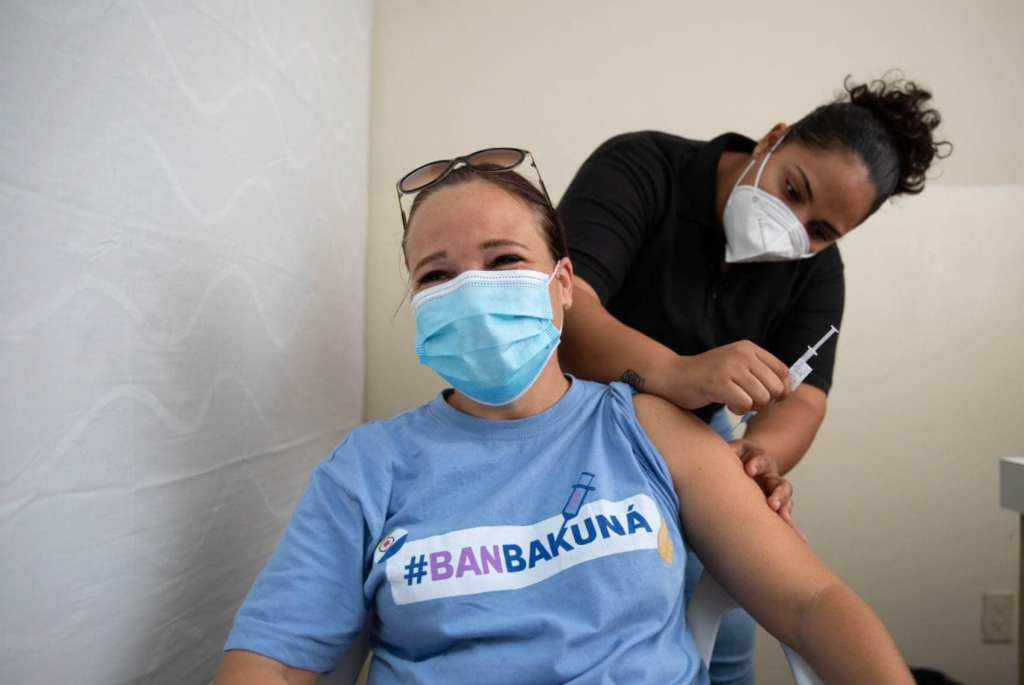
The Netherlands
Although the supply of vaccines got off to a hesitant start, the Netherlands made vaccines available at an accelerated and generous rate, when Covid infections exploded on the island. This meant that the vaccination program could be quickly scaled enormously in a short period of time, without ever falling short of sufficient vaccines. Although more in the background, the Netherlands also made expertise available to properly tackle and carry out the vaccination campaign. The fact that Bonaire was supplied with what is often seen as a ‘premium’ vaccine, BioNTech/Pfizer, may have further increased the willingness to vaccinate.
Infections
Bonaire did extremely well for months in preventing infections, helped by a good dose of luck. Even a few months into the Pandemic, the island was cited in international media as one of the few ‘covid-free destinations’ in the world. After a hesitant start with a single infection here and there, infections suddenly increased rapidly, to a total of almost 500 people. Unfortunately, not only the number of infections increased rapidly, but also the number of people who ended up in hospital with Covid symptoms. Although Covid-deniers downplayed that number, it had a huge impact on the population’s perception. The suddenly saw that it was all no joke or an ‘innocent flu, as some would have you believe.
Governor Rijna and doctor Luinstra
Although Bonaire was initially not very successful in looking for the right face in the Covid-19 information campaign, the use of recently retired GGD doctor Marian Luinstra turned out to be a lucky choice. Luinstra, who oftentimes with visible effort, also did her utmost to explain the situation in Papiamento, turned her into a credible figure and well-liked spokesperson. Governor Rijna – was also continuously visible and made a consistent sound, which almost turned into a personal mantra. “Stick to the rules and get vaccinated,” the Governor would say at every conceivable opportunity. During sometimes very long press conferences, both Rijna and Luinstra answered the many – and sometimes not always relevant – questions from the press with great patience.

Aimed Ayubi
Reporter and owner of radio station Live99FM became infected with the Covid-19 virus quite early on. After his infection, he ended up in hospital within a few days, due to an acute lack of oxygen. Ayubi, who is a very well-known public figure was not shy in sharing details of his experience. His story, which was recorded and shared by the Government Communications Department had a tremendous impact on the island. In the video Ayubi explained, among others, how many liters of oxygen he needed per day to be able to continue to breathe after falling sick. Suddenly Covid-19 was no longer a remote illness for the unlucky few. It suddenly became an acute and tangible threat to many residents, who until then had been hesitant about vaccination or their perceived risk of falling ill to the Coronavirus.

The Press
Bonaire has a very busy and diverse media landscape. For a small island, there is an ridiculous amount of Radio stations, TV channels, newspapers and online media. From the start of the Pandemic, the media showed a lot of attention to everything related to Covid-19. But most importantly, with a few exceptions, the media acted as a valuable partner in passing on important messages and objective information. As a result, an irrational fear of the Covid vaccine was not only not fueled but reduced as much as possible. The press was always present in large numbers during press conferences and sometimes waited hours to be allowed to ask the assigned two to four questions.
Communication Department
Although the Communications Department of the OLB – especially in the beginning – did not always operate very conveniently, it withstood the baptism of fire that it was forced to undergo with Covid-19 and in all severity. The Department sometimes seemed to be busy 24 hours and 7 days a week with sending out the latest infection figures, planning and executing Press Conferences and sending out Press Releases. They also played an important role in drawing up posters and executing a campaign to increase vaccination readiness on the island.

Public Health Department
The Public Health department deserves several compliments. First, the Department did not succumb to the suddenly increased workload and the large number of people who had to be tested at certain times. In addition, the way in which the Vaccination Campaign was set up and executed is nothing short of commendable. Whoever went in for the jab, came back with praise for the organization and the friendliness of the people in the Vaccination Center. This convinced many to get vaccinated after all. A script drawn up for the implementation of the vaccination campaign was carried out almost to perfection.

The island has been able to achieve a very high vaccination rate thanks to considerable efforts of many and cooperation between the parties. Currently, about 80% of the adult population has received at least one shot with the Pfizer vaccine. Nearly 70% of adult residents have now received both jabs.
The biggest challenge now lies with a group that did go in for the first jab, but never came back for the second one. It is not entirely clear what causes this. There is hope that especially young people between the ages of 12 and 17 will decide to get vaccinated in large numbers. A group that was initially quite skeptical about vaccination, but which got gradually more positive.
Governor Rijna from early on indicated that Bonaire should aim for an inoculation rate of 85%. That goal, that initially seemed so far away and almost unattainable, is getting closer and closer.
In a situation with increasing figures due to the new Delta variant in many countries in the world, it is noteworthy that Bonaire is doing relatively well, with contamination figures which are much lower than is the case on other Caribbean islands. The efforts and willingness of the population -after initial skepticism- to get inoculated in a massive vaccination way, could well provide the island with a lasting advantage, in the long road to full recovery.


